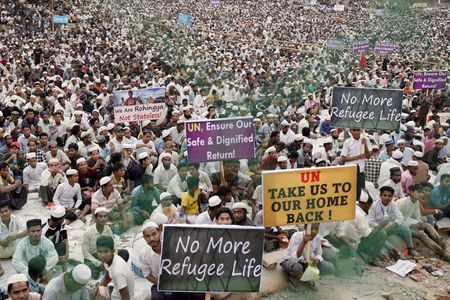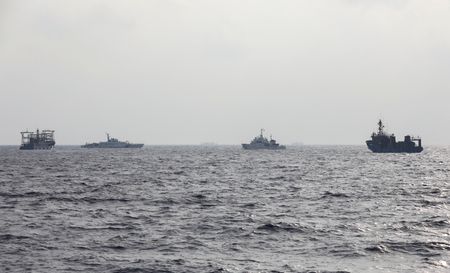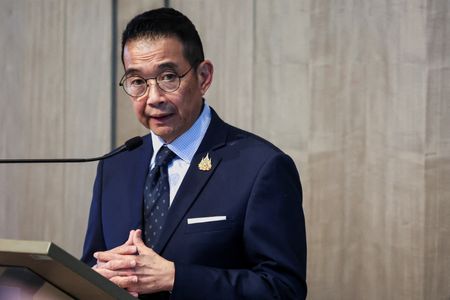By Olivia Le Poidevin
GENEVA (Reuters) -Dire humanitarian conditions in Myanmar and Bangladesh are driving more Rohingya to risk dangerous boat journeys to safety, such as one this month that ended in a sinking and estimates of 427 deaths, the U.N. refugee agency said on Friday.
The minority community’s plight might have been worsened by aid funding cuts, the agency added.
The humanitarian sector has been roiled by funding reductions from major donors, led by the U.S. under President Donald Trump, and other Western countries as they prioritise defence spending prompted by growing fears of Russia and China.
Two boats carrying some 514 Rohingya sank on May 9 and 10, carrying refugees who were thought to have left from refugee camps in Cox’s Bazar, Bangladesh, and Rakhine State in Myanmar. Only 87 survivors were found, UNHCR said. The possible deaths of 427 people would make it the deadliest tragedy at sea involving Rohingya refugees so far this year, according to the agency.
That people chose to board boats during the annual monsoon season, which brings dangers such as strong winds and rough seas, reflected their desperation, the agency added.
“The dire humanitarian situation, exacerbated by funding cuts, is having a devastating impact on the lives of Rohingya, with more and more resorting to dangerous journeys to seek safety, protection and a dignified life for themselves and their families,” said Hai Kyung Jun, Director of UNHCR’s Regional Bureau for Asia and the Pacific.
“The latest tragedy is a chilling reminder that access to meaningful protection, especially in countries of first asylum, as well as responsibility sharing and collective efforts along sea routes, are essential to saving lives,” Kyung Jun added.
The agency urged more financial support to stabilize the lives of Rohingya refugees in host countries including Bangladesh, and those displaced inside Myanmar. Its request for $383.1 million for support in 2025 is currently only 30 per cent funded, it said.
UNHCR received over $2 billion in donations from the United States in 2024, or 40% of its total donations.
A UNHCR spokesperson said that in March it had frozen more than $300 million of planned activities as part of cost-saving.
(Reporting by Olivia Le PoidevinEditing by Ludwig Burger, William Maclean)









